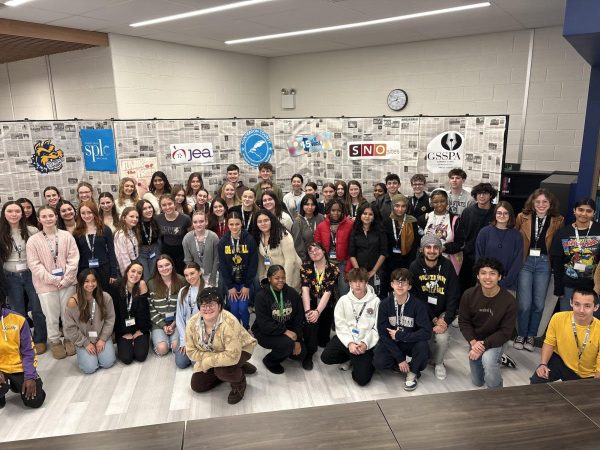Planning for the Future

“So, what are you going to do for the rest of your life?” This question, and its many variations, is all too familiar to upperclassmen. With seniors making college decisions, and juniors just starting to plan for life after high school, the past few months have been full of excitement and anxiety for many.
The future brings independence–the chance to take a more active role in your own life. Now you can decide where you want to live, how you want to spend your time, which people you want to build relationships with, and ultimately, who you want to be. After years of being told what to do, this is a welcome change. (Of course, everyone will have varying degrees of freedom in making these decisions, and varying degrees of options that are available to them, depending on economic status, role of parents/guardians in their lives, etc.). However, having so many choices can easily be overwhelming. Combined with the pressure that we have to plan the “rest of our lives” when we are only seventeen, there is a very real fear that if we make the “wrong” choice, our lives will be forever ruined. That is simply untrue. There will always be chances to switch fields, go to college, move away, or just “start over.” We know this, and yet, our brains like to spin around, catastrophizing over well-meaning advice from teachers, parents, and counselors. While we can’t change the actions of others, we can control our response. Counteract these irrational thoughts by recognizing the reality of the situation. When we are anxious, we tend to think in absolutes– I should do this, I will never be that. The truth, however, is not all that clear cut.
Another major source of stress is the pressure to succeed in everything, often under the guise of beefing up college applications. Take grades, for example–we’re supposed to take the most challenging classes we can, all while maintaining a high GPA. Add to that extracurriculars, volunteering, part-time jobs, not to mention the daily stress of existing during a global pandemic. It’s impossible to balance all these things at once. If you can, try to pick and choose where to put your energy and let yourself do a sub-par job on the rest. Remember: time and energy are not limitless resources.
Planning for the future can also act as a coping skill. If you are having a difficult time in your current environment, exploring future options can be an escape from reality. Except it’s better than that: you can take concrete steps to make it your reality. The process of imagining yourself in different places–big cities, small liberal arts colleges, technical schools–is sometimes just plain fun. Seeing what kind of cool things these places have to offer and comparing attractions can become like planning a vacation, or playing Sims. It’s also a reminder that high school will end, eventually. All things eventually end. Life is constantly changing. We are constantly changing. Such is the nature of the universe.
There’s no way around it: the future is scary. It’s exciting. Planning for it is hard. It’s okay if you have no idea what you’re doing, and it’s okay to not know what you want to do for the rest of your life. If the answer to the opening question was a resounding shrug, know that one day an answer will flow easily from you. Sometimes we just need to take a step back from the future and focus on our mental health in the present before planning for anything else. We are all on different paths, going different places at different paces. We can’t compare our journeys because we are leading different lives. Try to remember: eventually, we will all end up where we need to be.




